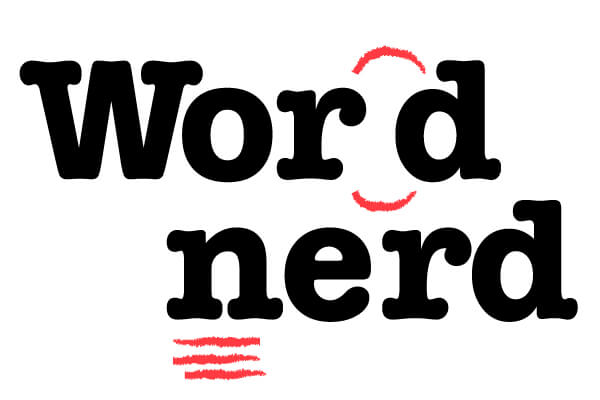First, it was posted on my Facebook wall. Then it turned up in my email inbox. When I got to work this morning, there it was, lying right on top of my keyboard.
I cannot escape the New York Times story about the multi-million-dollar Oxford comma that wasn’t.
You’ve probably already heard about this big-ticket missing punctuation mark, as it has been making headlines for days now: “The Case of the $13 Million Comma and Why Grammarians Are Rejoicing”; “The High Price of a Missing Comma—10 Million.” The price tag may vary (that first number is given in Australian dollars), but the story’s essentials remain the same: because of the way a section of Maine law was written—and punctuated—truck drivers working for a dairy in Portland may be entitled to overtime pay.
I received fifty-six notifications about and copies of the missing-comma story from a wide assortment of friends, relatives, and co-workers. “Do you think this is what I do?” I grumbled to myself, conveniently forgetting that I had actually written an article about the Oxford comma and simply had friends, relatives, and co-workers who knew me and were thoughtful. “Do you think my job is all about commas?”
The reason a headline such as “The Case of the $13 Million Comma” works—the reason it creates a certain intriguing dissonance—is that commas should not be worth that much. They shouldn’t be worth anything. They are small and insignificant things, and the people who get all concerned about them are pedants and fussbudgets. Why should grammarians, according to ABC, be “rejoicing” over the $13 million comma? Presumably, because their arcane and oft-maligned subject has turned out to be unexpectedly relevant.
My unjustified annoyance stemmed from my all-too-keen awareness of the stereotypes associated with copy editors. If grammarians, and by extension copy editors, are expected to respond to a news-making comma with jubilation, doesn’t that suggest that they are seen as having puny lives, as having so few causes for exhilaration and affirmation that the very mention of a news-making comma is enough to send them into fits of ecstasy? Copy editors are often viewed as the least romantic of the writing and editing professionals: writers and editors consider the beauty and flow of language, the exploration of significant themes, while copy editors insist on applying esoteric, unimaginative rules and whinnying about parallelism and vague antecedents. We are like the accountants of the trade, always referring to specific subsections of the Chicago Manual of Style and heartlessly querying sentences that, while perhaps evocative and lyrical, contain misplaced modifiers.
But we are not (or at least not always) fusty meddlers, busy capitalizing words according to arbitrary commandments, stamping “dangling participle” on errant clauses, and generally forcing blameless text to conform to the mysterious dictates of some copy-editing cabal. We can be creative, too! We, too, think about the rhythm of words, the moods they evoke; we consider the larger shape of a piece and how each sentence, each paragraph, contributes to the whole.
The missing-comma case certainly indicates that my particular skill set can be crucial in a legal context (“The defense calls Dr. Sweet to the stand, Your Honour—she’ll be able to comment on the accused’s use of the subjunctive”), but this recent proof of the power of punctuation will do nothing to dispel the sense that copy editors and grammarians dabble in minutiae and obscurities.
However, as much as I was irritated by such headlines as “Grammarians Celebrate Sudden, Unexpected Relevance!” and by such thoughts as “My job is not all about commas, and I am, in fact, an artist,” I was also profoundly gratified.
Because, yes, my job is about commas. Not because my job is all about nitpicking and mindless consistency, but because the presence or absence of a single comma can be enormously important—I know that, and now the Oakhurst Dairy, the state of Maine, and countless readers worldwide know that as well. Commas, word order, word choice—the smallest error, the tiniest oversight, can create confusion or hesitation in a reader. Minutiae can be important. A concern for construction, for comprehensibility, does not spring from some urge to satisfy random and seemingly irrelevant grammar requirements or to avoid censure from random grammarians: it’s usually caused by an admittedly heightened sense of all the ways in which a series of words may be read and understood. Most misunderstandings will not be disastrous—yes, most readers will “probably know what we’re getting at,” and no one will die or launch a lawsuit if a comma is missing or misplaced. But we best serve our readers—and writers—when we reduce the opportunities for bafflement and uncertainty. A reader will not thoroughly appreciate a sentence if they get to the end of it and think, “Oh, that’s what the writer meant. Probably.”
I will not be able to say to writers or editors, “You must add that comma—think of the dairy!” But “The Case of the Missing Comma” at least proves that seemingly insignificant details can give rise to unintended interpretations—and those are things no writer wants, even if they don’t end up costing $10 million.


